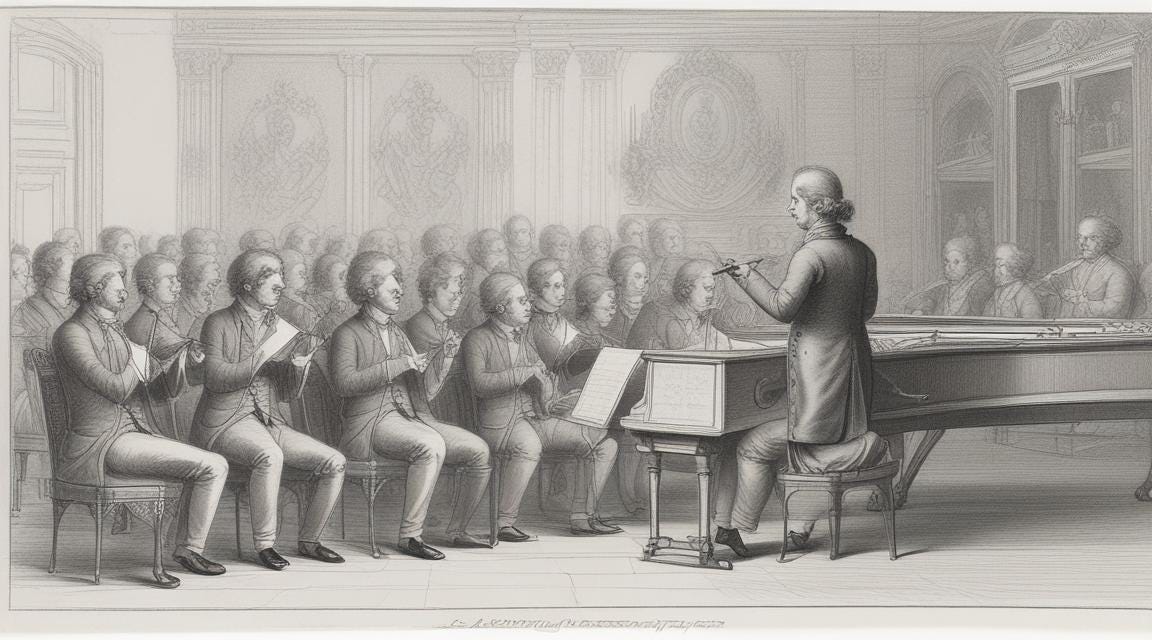This Day in Legal History: Beatles Sign 10 Year Partnership Agreement
On this day in legal history, April 19, 1967, The Beatles, comprising John Lennon, Paul McCartney, George Harrison, and Ringo Starr, entered into a significant legal agreement that aimed to bind them together as a group for another decade. The partnership deed they signed not only reflected their intent to continue collaborating but also legally formalized the business side of their operations amid their skyrocketing fame.
However, the unity that this agreement sought to solidify began to unravel just a few years later. Despite their intentions in 1967, The Beatles faced increasing personal and creative differences which led to their disbandment in 1970, a full seven years short of the agreement’s term. The disintegration of their partnership led to one of the most famous legal cases in music history.
Paul McCartney took the lead in legally challenging the partnership. In December 1970, he filed a suit against the other members to dissolve The Beatles’ contractual partnership. McCartney’s move was a response to managerial disputes, particularly concerning Allen Klein, whom John, George, and Ringo favored to manage their business affairs, a decision Paul vehemently opposed.
The legal battle that ensued was fraught with emotional and financial tension, highlighting the complexities of music rights, personal relationships, and business interests intertwined within the band. McCartney sought the appointment of a receiver to manage the group’s finances, effectively protecting his earnings from decisions made by Klein, whom he distrusted.
The court ultimately ruled in McCartney's favor in 1971, leading to the official legal dissolution of The Beatles’ partnership. This case not only marked the end of one of the most successful musical collaborations in history but also set a precedent in how legal disputes within bands were viewed and handled in the future.
The dissolution of The Beatles not only reshaped their personal and professional lives but also impacted the music industry, emphasizing the importance of legal agreements in artistic collaborations. While their music continues to influence generations, the legal battles they endured serve as a cautionary tale about the potential complexities of combining creative endeavors with business interests.
Troutman Pepper Hamilton Sanders and Locke Lord, two prominent law firms, are currently in discussions about a potential merger that would significantly elevate their market position. If successful, the merger would create a powerhouse legal firm with over 1,600 lawyers and revenues surpassing $1.5 billion, positioning it among the top 30 largest firms by revenue. This strategic alignment is driven by complementary strengths in corporate, litigation, and real estate practices, with both firms having a robust presence in these areas.
The merger would also expand Troutman Pepper’s geographic footprint into Texas, a key market due to its burgeoning energy sector, where Locke Lord already has established offices in Houston, Dallas, and Austin. This move reflects a broader trend of consolidation within the legal industry, where smaller firms merge to compete more effectively against larger rivals, enhancing their scope, talent pool, and profitability.
This discussion is part of an ongoing wave of mergers in the legal sector, highlighting a competitive push among firms outside the Am Law 200 to scale up operations and extend their market influence. Both firms have a history of mergers, with Troutman Pepper emerging from a 2020 merger and Locke Lord from several mergers, the most recent in 2015. These consolidations have historically aided in growth and market presence, as seen in their revenue and lawyer count increases over the years. The potential merger aims to leverage these synergies to create a more formidable competitor in the legal market.
Troutman Pepper, Locke Lord Discuss a New $1.5 Billion Firm (2)
The legal battle between Jones Day and Soverain Software, which began over two decades ago, continues to unravel in the courts. Initially, Jones Day helped Soverain secure a $40 million settlement from Amazon in a patent infringement suit in 2005. However, tensions arose when Soverain only paid Jones Day $22 million of the fees before their relationship deteriorated in 2010 during a lawsuit against Newegg, where Soverain won significantly less than the $34 million it sought.
The dispute escalated when Jones Day claimed that Soverain had not paid all the fees owed, leading to a $1.5 million arbitration award in favor of Jones Day in 2015. Jones Day accuses Soverain of creating a complex scheme to avoid payment, including fraudulent transfers of funds involving Soverain's founder and former chief legal officer.
Soverain, known for its aggressive patent litigation over online shopping cart technology, faced a major setback when key patents were invalidated in 2013, diminishing its revenue potential. Despite this, Jones Day alleges that Soverain and its executives engaged in financial maneuvers to siphon funds, complicating the firm's efforts to collect its fees.
Currently, the legal wrangling involves attempts by Jones Day to enforce the arbitration award, while Soverain challenges the validity of the claim, arguing it was filed too late. The saga highlights ongoing issues in the legal industry related to client relationships, fee disputes, and the challenges of enforcing legal payments.
Jones Day’s Messy Split From Client Fuels Long-Running Fee Fight
In a significant legal development, lawyers have completed the selection of 12 jurors for the landmark criminal trial of former U.S. President Donald Trump in New York. This trial, notable for being the first in which a former president stands as a defendant, involves allegations that Trump falsified business records to conceal a hush-money payment to porn star Stormy Daniels ahead of the 2016 election. The selection process was marked by challenges, including the dismissal of potential jurors who felt they could not remain impartial, reflecting Trump's polarizing influence.
The trial has already seen its share of drama, with the early dismissal of jurors—one due to intimidation concerns after her personal information was inadvertently revealed, and another for failing to disclose previous legal issues. These incidents underscore the heightened tensions surrounding the trial. The jury's task is complicated by the intense public and media scrutiny, as well as Trump’s frequent critiques of the legal process and those involved, which has led to concerns about juror safety and the integrity of the trial process.
Justice Juan Merchan, overseeing the trial, has implemented measures to protect jurors' anonymity and limit media coverage of certain details to prevent potential harassment. As the trial moves forward, with opening statements expected soon, the world watches closely. This case not only holds significant legal ramifications for Trump, who faces multiple criminal cases, but also carries substantial political implications, especially with Trump’s ongoing presidential campaign. The outcome could influence public perception and the political landscape significantly.
Lawyers select 12 jurors to serve in Trump hush-money case | Reuters
More than one-third of U.S. law school deans have expressed opposition to a new proposal by the American Bar Association (ABA) aimed at enforcing greater uniformity across law school courses. The proposal has sparked concerns about the ABA's increasing control over academic freedom and the curriculum design within law schools. Seventy-six deans from ABA-accredited schools, including prominent institutions like New York University, Georgetown, and the University of Michigan, have publicly criticized the initiative.
Proponents of the proposal argue that establishing more uniform required classes and specific learning goals for each course would ensure that students possess a consistent foundational knowledge, which would support their overall education and benefit faculty teaching advanced courses. This group includes influential figures such as former ABA legal education administrator Barry Currier and several law professors actively involved in student outcomes and assessment.
The ABA has outlined that the revised standards would clarify expectations and requirements, moving away from the current broad standards. This adjustment is intended to help law schools more clearly understand and meet accreditation requirements, with the proposal necessitating that law schools regularly review and revise their academic programs every five years.
Critics, however, argue that the proposal infringes on the academic freedom of professors and imposes significant administrative burdens on schools. They contend that it unnecessarily dictates specific learning outcomes and course alignments that could stifle educational innovation and diversity in teaching methods.
The proposed changes also include new requirements for first-year classes, such as early assessments to provide students with feedback before final exams and mandated academic support for students who underperform.
With the comment period now closed, the ABA's legal education council is expected to consider the feedback and make a decision on the proposal at its next meeting on May 17. The ongoing debate highlights a broader tension between regulatory oversight and academic independence in legal education.
Law deans balk at course uniformity proposed by American Bar Association | Reuters
This week’s closing theme is by Wolfgang Amadeus Mozart.
Wolfgang Amadeus Mozart, born on January 27, 1756, in Salzburg, Austria, is one of the most prolific and influential composers of the Classical era. His father, Leopold Mozart, a noted violinist and composer in his own right, was instrumental in nurturing his son's prodigious talent. Mozart showed early signs of genius, mastering keyboard and violin by the age of five and composing by the age of five and a half. His extensive tours of Europe as a child wunderkind brought him into contact with a wide array of musical styles and influential composers, which shaped his own unique compositional voice.
Mozart's works encompass all genres of his time, including symphonies, operas, solo concertos, chamber music, and choral music, showcasing his remarkable versatility and creativity. His music is celebrated for its melodic beauty, formal elegance, and rich harmonic and instrumental textures. Despite his profound musical output, Mozart’s life was marked by financial instability and he died prematurely at the age of 35 on December 5, 1791, in Vienna, leaving behind an enduring legacy.
One of Mozart’s lighter, yet deeply admired works is the "Serenade in G Major," also known as "Eine kleine Nachtmusik" (A Little Night Music). Composed in 1787, the same year as his opera "Don Giovanni," this piece exemplifies Mozart’s ability to infuse charm and sophistication into his compositions. The second movement, "Romance," is particularly notable for its lyrical and tender qualities. It begins with a gentle, soothing melody that exudes calmness and reflective poise, then transitions into a minor mode that adds a touch of drama before returning to the tranquil themes of the opening. This movement, like the rest of the serenade, is a wonderful example of Mozart's genius in creating music that is both accessible and complex, embodying the elegance and grace of the Classical style.

















Legal News for Fri 4/19 - Troutman Pepper and Locke Lord Sitting in a Tree M-E-R-G-I-N-G, Jones Day vs. Soverain Software, Jury Selection in Trump Trial and Law Deans Oppose ABA Course Uniformity Rule